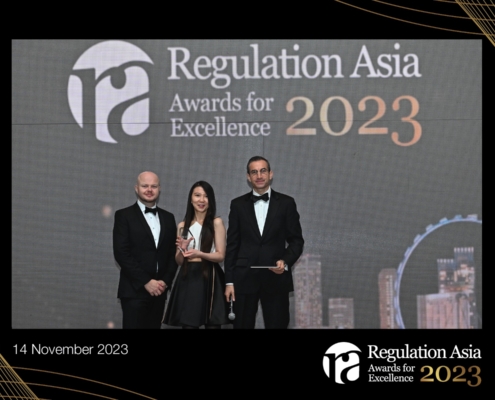Targeted Financial Sanctions: Singapore Sanctions Russia in Response to Russia’s Invasion of Ukraine
Digital payment token service providers are explicitly prohibited from facilitating transactions that may circumvent these financial measures
In the aftermath of Russia’s invasion of Ukraine, the Singapore Government has taken decisive action by implementing targeted financial measures. These measures specifically target Russian banks, entities, and activities in Russia, as well as fundraising activities benefiting the Russian government. All financial institutions in Singapore, including banks, insurers, and payment service providers, are required to comply with these measures. In this article, we will delve into the details of these targeted financial sanctions and their implications.
Financial Measures in Relation to Russia
By applying these measures to all financial institutions in Singapore, including banks, insurers, and payment service providers, the Government has ensured a comprehensive approach to financial sanctions. Notably, digital payment token service providers are explicitly prohibited from facilitating transactions that may circumvent these financial measures. You can find more information about these measures in the following notices:
- Notice SNR-N01 Financial Measures in Relation to Russia
- Notice SNR-N02 Financial Measures in Relation to Russia – Non-prohibited Payments and Transactions
Targeted Financial Sanctions under UN Security Council Resolutions (UNSCRs)
Singapore sanctions Russia because, as a member state of the United Nations (UN), it is committed to implementing UN Security Council Resolutions (UNSCRs). These resolutions may include targeted financial sanctions against individuals and entities designated by the UN Security Council or relevant UN Committees. By complying with these financial sanction requirements, financial institutions, non-financial institutions, and individuals in Singapore contribute to global efforts to maintain international peace and security.
Regulations for Targeted Financial Sanctions
To give effect to targeted financial sanctions under the UNSCRs, the Monetary Authority of Singapore (MAS) has issued the Financial Services and Markets (FSM) Regulations. These regulations apply to all financial institutions in Singapore and entail several key obligations:
- Freezing funds, financial assets, or economic resources of designated individuals and entities.
- Avoiding financial transactions, providing financial assistance, or services related to designated individuals, entities, or sanctioned activities.
- Reporting any relevant information concerning the funds, financial assets, or economic resources owned or controlled by designated individuals or entities.
Failure to comply with the FSM Regulations may result in penalties, including fines of up to SGD1million.
Lists of Designated Individuals and Entities
Financial institutions must exercise due diligence before engaging in business relationships or providing financial services. They should ensure that they do not deal with designated individuals and entities outlined in the respective FSM Regulations. Regular screening of customer names, including beneficial owners, against the designated lists is a vital aspect of compliance for financial institutions.
Compliance Beyond FSM Regulations
In addition to the FSM Regulations, financial institutions must also adhere to other targeted financial sanctions, such as those stipulated in the Terrorism (Suppression of Financing) Act 2002. Understanding and complying with these additional requirements is crucial for financial institutions to maintain regulatory compliance and contribute to countering the financing of terrorism.
Compliance Requirements for Non-Financial Institutions and Individuals
Non-financial institutions and individuals in Singapore are similarly obligated to comply with sanctions requirements concerning UN-designated individuals and entities. The UN Act, enforced since 2001, empowers the Minister for Law to create regulations necessary for compliance. These regulations, along with the UN Act, prohibit dealings with designated individuals and entities, encompassing the provision of resources and services that benefit them.
Compliance with the UN Act and its Regulations is crucial for individuals and entities in Singapore. Failure to comply may result in severe penalties, including fines and imprisonment.
Training of Staff in Sanctions
It is important for staff in financial institutions to have a good understanding of sanctions regimes and the implications for business. GRC Solutions provides online training courses for your staff across a range of areas of financial crime including Anti-Money Laundering, Trade Based Money Laundering, Sanctions, and Proliferation Financing. These can be taken as is or customized to incorporate your company policies and procedures. For more information see https://www.grcsolutions.com.sg/
Source: https://www.mas.gov.sg/regulation/anti-money-laundering/targeted-financial-sanctions











